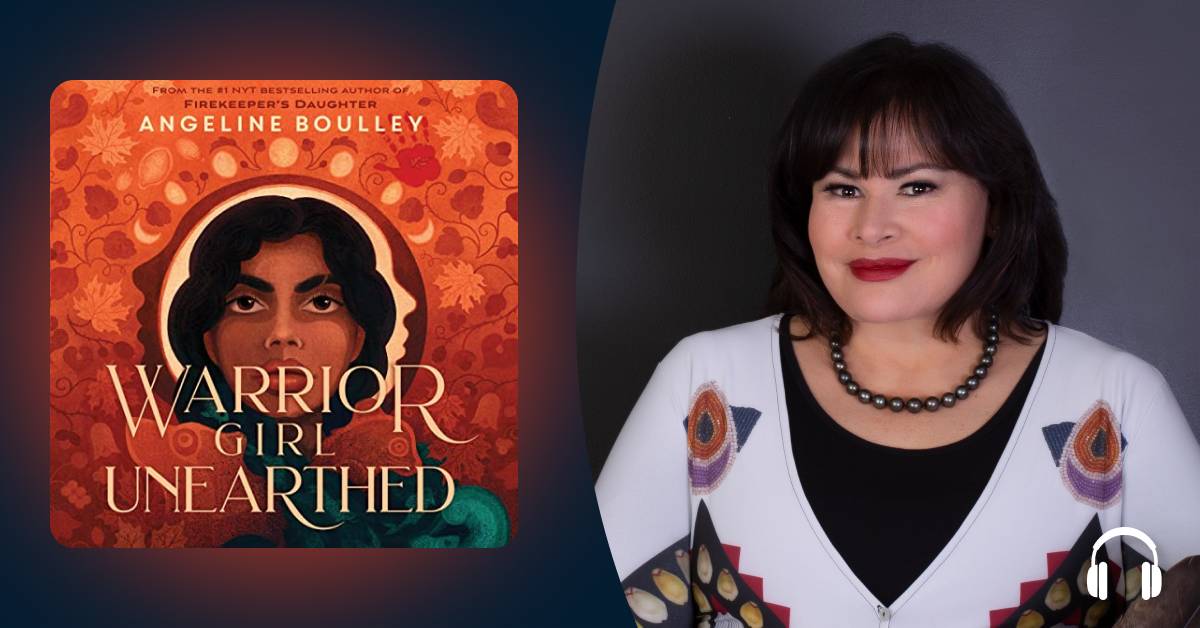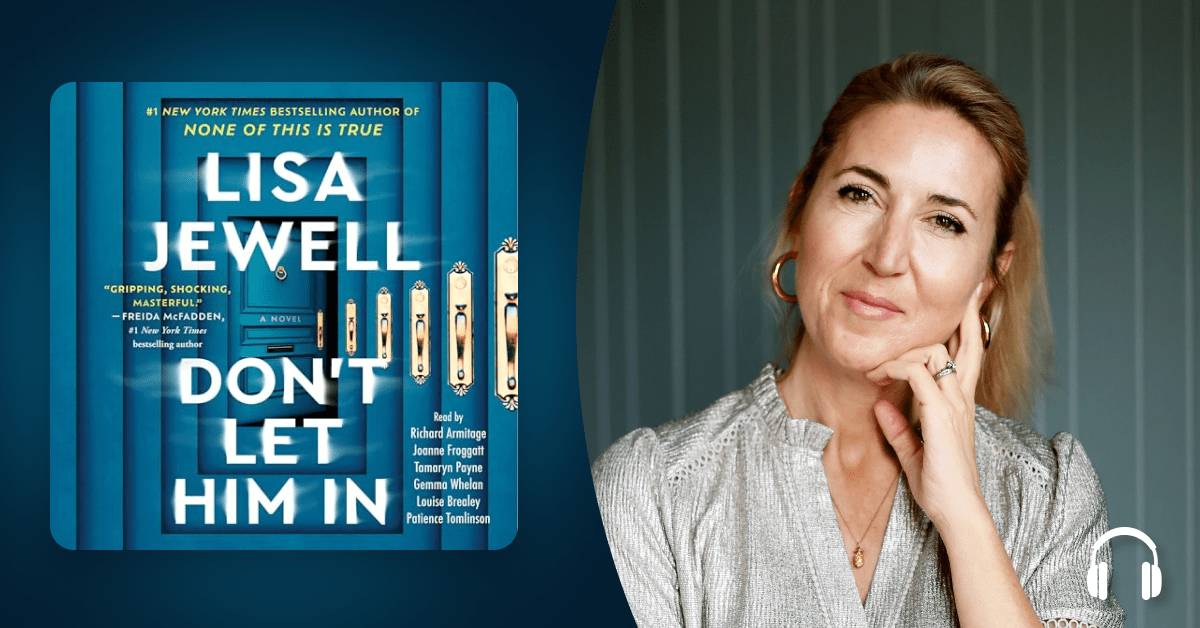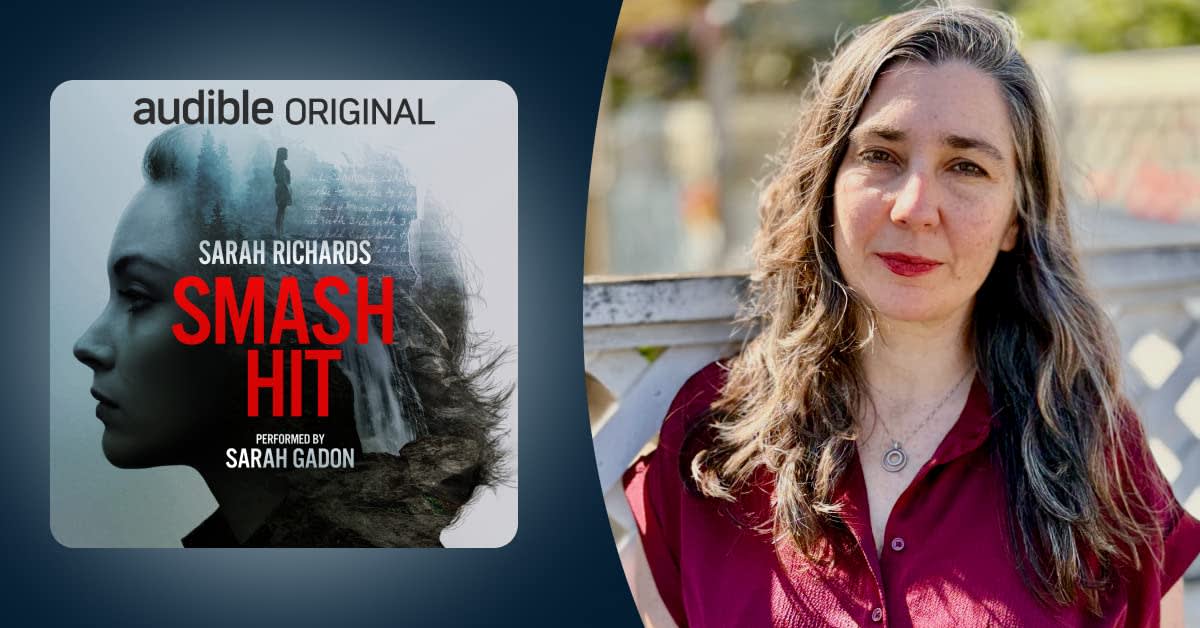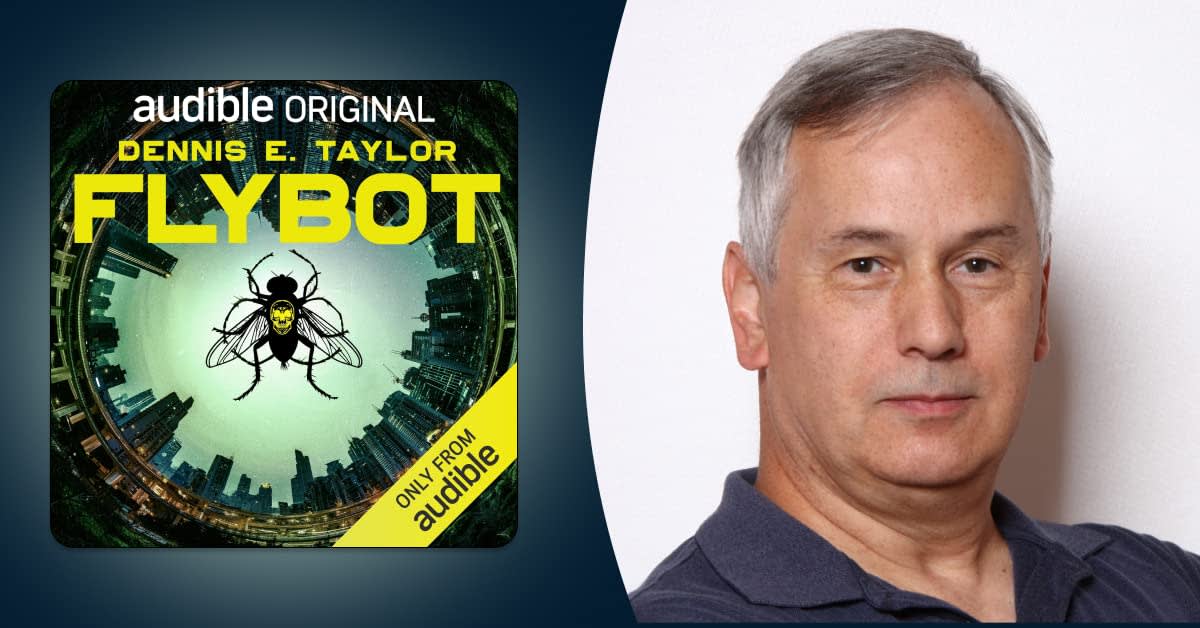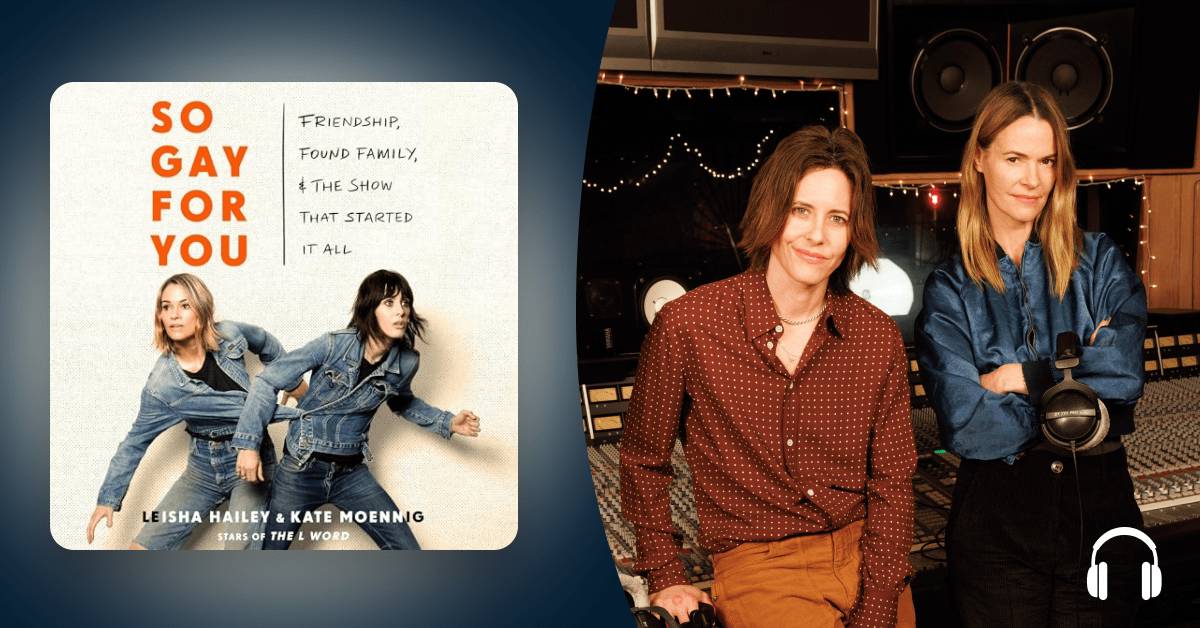Note: Text has been edited and does not match audio exactly
Melissa Bendixen: Hi, listeners. This is Melissa Bendixen, an editor here at Audible. Today, I'm speaking with Angeline Boulley, author of Firekeeper's Daughter and now Warrior Girl Unearthed, which is set about 10 years later and follows the story of Perry Firekeeper-Birch, a Native teen who fights to return her ancestor's remains to her Ojibwe tribe. Thanks for joining us, Angeline.
Angeline Boulley: Thank you. It's a pleasure to be talking with you.
MB: So, when did you know you would follow Perry and Pauline's story into the future for the sequel to Firekeeper's Daughter? And for those who might not know, Perry and Pauline are the six-year-old twins in Firekeeper's Daughter. They're Daunis's cousins.
AB: It was after I got my agent, but before Firekeeper's Daughter went out on submission. And my agent had said, "Well, what else do you have?" In terms of a second book, I really did not have anything. And the idea of writing Daunis's next adventure didn't excite me the way I felt it should have. I just wanted to write a character that was very different from Daunis, because Daunis has been on my mind, in one shape or form, since I was 18 years old and first had that idea for the story—we're talking almost four decades. And I really wanted to challenge myself to write a character that was more funny, more “leap first” and think about consequences down the road. I had the idea for a story about this Indigenous Lara Croft, raiding museums instead of raiding tombs, to bring ancestors back to the tribes that are wanting their ancestors’ remains returned. And Perry was the perfect narrator because the topic of Native graves repatriation can be really intense, and I thought her joie de vivre, her lightness of spirit, would be a good counterbalance to the intensity of the story.
MB: Yeah, for sure. She thinks she's a slacker, but really, she's such a rebel and you find that out. But you'd mentioned an Indigenous Lara Croft museum heist. I've seen you say this elsewhere, and that's so much fun to think about. You also educate with this novel as well as entertain, most especially around laws with repatriation of Native American remains and artifacts. I was curious about if you did any research to write this story. And what made you want to dive into this issue in particular for young adults?
AB: Sure. I worked for my tribal community for about 12 years. And during that time, I not only supervised our education division, but I also worked with culture, recreation, and our elder care division. And with our cultural division, our tribe had been working to repatriate ancestors. I learned more about the issue by supervising the staff that did the repatriation work, so that was maybe the start of my research. And I knew a lot of people, particularly in Michigan, who work on repatriation. So, I had some great sources, and I did a lot of reading. The sources that I used made their way into the story as part of Cooper's resource list for Repatriation Padawans and Jedi. That was a clever way for me to be able to cite these sources for anyone that was interested in taking the next step in learning more about repatriation.
MB: Yeah, yeah. Since you yourself worked with this, was Perry's experience with repatriation reminiscent of your own experience with repatriation and education?
AB: Yes. So, as you know, the Native American Graves Protection and Repatriation Act, which was passed in 1990, is a federal law, and it does not pertain to international museums. Our tribe had worked for 10 years to repatriate an ancestor that was in a museum in Germany, and just seeing the hard work and dedication of the staff and what it took to build a relationship and be able to bring that ancestor home, without having a law to say, "This is the right thing to do" … I'm just so in awe of people who do this work day in, day out.
"I think that through the power of a story, it can teach and reach so many more people than I felt I could do in my career."
Another one of my sources talked about visiting a professor's office. And the part about when Perry finds a cereal box that's full of teeth and it's labeled “teeth”—that's based on an actual incident my friend Shannon Martin told me about. And the parts about bones being written on with Sharpie marker—these are things that happen. The first time you hear about it, you're just outraged. And I wanted Perry to capture that outrage and give it a voice and a megaphone. (laughs)
My tribe's repatriation officer—her name is Marie Richards—was one of my sources, and I spoke a lot with her. When she read the finished book for the first time, she sent me an email and said that she had to walk away from it, at times, because this work is so difficult and it weighs heavy on your heart. And she said while she was taking one of these breaks from reading, she got an email from Michigan State University with a notice of transfer. That's the final step in the repatriation process, where the institution notifies the tribe that, yes, the request to repatriate is approved, finalized, and this is the date that you can come and pick up your ancestors and take them home. And getting that notice of transfer from Michigan State University while she was reading the book—that feeling is how she would answer if she were Cooper when Perry asks, "How do you do this work when it's so, you know, heavy on your heart?" Marie's response is, "Because of the feeling when you get that notice of transfer. That's why we do the work."
MB: Wow, that’s really powerful. Listening to this book, there were so many times when it feels like you want to cry tears of frustration. That feeling of not being able to do anything—it’s so raw. It's so apparent in this story. You really feel it. I'm curious, now with your career, you've had so many different roles. You've worked in so many different areas, and you've worked a lot in education, educating others about Native life. What made you decide to turn to writing to tell others about Indigenous experiences through the eyes of teen and young adult characters in particular?
AB: I guess I've always been a storyteller, even though I was not a creative writer. I did a lot of grant writing, and I realized that grant writing is storytelling in a specific format. I just always had that idea for the story about Daunis—I pitched Firekeeper's Daughter as an Indigenous Nancy Drew meets 21 Jump Street. So, I just had this great idea for a story and always told myself that someday, I would write it. You know, many people have a story that they're like, "Ooh, I should write that story." I actually decided at 44 that, yes, I was going to write a story. And I had no idea it would take me as long as it did to finish it and get published. I think that through the power of a story, it can teach and reach so many more people than I felt I could do in my career. And I've always been a voracious reader. My parents are both incredible readers, and so to me, books have always been places where ideas launch.
MB: Yeah, yeah. Do you think you're gonna keep going? You've got book one, book two. You think you've got the hang of it now? (laughs)
AB: Yeah, I have a great idea for book three. And so, like the others, it'll involve Sugar Island and some familiar faces and some new faces. So yeah, I have great ideas now for more stories. Now I feel like I actually have a bit more skills in telling a story and that it's not as painful as it was [over] the 10-year journey to write Firekeeper's Daughter.
MB: Yeah. I've heard it said that the more that you write, the more ideas you have. Have you been finding that true as you've been on your writing journey?
AB: Yes. Yes, I would say I have found that to be true.
MB: That's good. I’m glad you have more and more ideas, because we'll want them from you. (laughs)
So, I want to turn us to narration. You have Isabella Star LaBlanc, who narrated Firekeeper's Daughter, returning to Warrior Girl Unearthed. I know you and Isabella have a good working relationship, and I heard that she actually ended up recording the story remotely while she was shooting a show in Iceland. Can you tell us the story there?
AB: I wanted Isabella to narrate. She did such a phenomenal job with Firekeeper's Daughter. It was her first time ever narrating an audiobook, and she has since done several more. And so, the opportunity to have her voice my second book—I definitely wanted it. The only available week that she had to record Warrior Girl Unearthed, she was in Iceland, filming the newest season of True Detective. My understanding is that Macmillan shipped the recording equipment to her in Iceland, and she was able to narrate the book in the available time she had. She does such a phenomenal job. I cannot say enough good things—great things—about Isabella Star LaBlanc.
MB: Yeah, well, I want to hear it! Can you talk about what it's like hearing your words of this story through Isabella's narration? In particular, one thing that shines so much is that you get to hear the sound of the Ojibwe language coming alive.
AB: Sure. The beauty of having an Indigenous narrator is that they're familiar with certain cadences. Elders in my community sound a certain way, and Isabella was able to be familiar enough with elders in her community that there were some similarities. She worked with Ojibwe speakers about the pronunciations, and she just took to it so incredibly well. And hearing her speak, you would not know that she's not a fluent speaker of Ojibwemowin, our Ojibwe language. She just has such an ear for dialect and cadences and the flow of the language. It’s a very beautiful spoken language. There's a rhythm to it, and she just tapped into that.
"The truth is that teens care very much about the things that they care about, and once they engage in something that captures their interest, they feel like an unstoppable force."
MB: Mm-hmm. It’s such a joy listening to it, being able to get the feel of it. One thing I think that you can really feel in the narration with your writing is that you're so good at drawing characters that feel real and alive. It's hard to believe that it was your debut novel with Firekeeper's Daughter. I remember missing Daunis so much after finishing the novel, and I just wanted to go back and hang out with her. And I feel the same way about Perry and Pauline now that I finished Warrior Girl Unearthed. How do you get inside the minds of your characters and find ways to make us fall in love with them so deeply?
AB: I find that when I'm thinking about my characters, I make playlists. I feel like if I can tap into what music a character listens to, it feels like it gives me insight into that character. I know them when I know their music. And when I'm writing certain scenes, I will listen to different types of music. And then when I'm in the editing process, I listen to the soundtrack for my favorite movie. It's kind of like my own version of the Pomodoro method, where you'll do a writing sprint for 20 minutes and then take a bathroom break and then come back for another 20 minutes. And for me, I'm just getting into my routine after 20 minutes. So, I need a longer window of this sprint, or activity. And so, I listen to the soundtrack for Interstellar. There's something about it that puts me in this … it's like an altered state. It's peaceful, and I can zone in on editing the words. It's more than white noise. It becomes this thread that … I don't have the words to describe it. Music to me is a huge way of creating characters, creating scenes, and then tapping into different parts of my brain, different skill sets. It makes sense to me that it would require different types of music or sounds, depending on the skills that I need to write and to revise and do final edits.
MB: That's so interesting that it's very aural-based for you, very audio-based.
AB: Yeah. I'd like to say something profound about that and connect it to oral storytelling traditions of the Anishinaabe people. But really, I think a lot of it comes down to that my dad was a truck driver, and we listened to audiobooks—storybooks on cassette tape—growing up. And we were always in the car for long trips to return to the reservation and visit grandparents and cousins, and so we would be listening to these audiobooks. That's one of my favorite ways to receive story—hearing it. Your mind forms these pictures, and it's such a wonderful way for story to be received.
MB: Yeah. It is the original way, right?
AB: Yeah.
MB: It is the ancient way, so it makes sense.
AB: Yeah. I've always had audiobooks going in my car whenever I would drive my kids, even to the grocery store. We were listening to wherever this story left off last. And my daughter has, I think, the equivalent of a photographic memory but for audiobooks. She would be seven years old and say, "Um, we already listened to this one." And I would say, "Oh well, aren't books like old friends that we get to visit again and again?" And she would say, "Nope. I know who killed so-and-so. And it's this person." She was like, "Nope, I already listened to it. I already received the story." She needed new stories rather than revisiting old friends.
MB: That's so funny. Is she like that now?
AB: Yeah, she's still like that. She won't listen to an audiobook more than once, which is odd because I just listened to Yellowface by Rebecca Kuang. And as soon as I get done with an audiobook, if I loved it I will listen to it again and pick up on the things that I missed in the beginning of the story. I just listened to The Inheritance Games, and then my next audiobook is Promise Boys by Nick Brooks because I heard that he has a full-cast audio production. I really want to hear how that brings the story to life even more.
For me, the game-changer was Sadie by Courtney Summers. I think that it's more powerful a story in the audio format than the written format. There’s this story of Sadie searching for her sister's killer and then, all of a sudden, there's this podcast episode that you hear and the podcast narrator is talking about the girls, the missing girls. And then, you realize, "Oh, he's talking about Sadie and her sister." I feel like it elevated what was possible in young adult storytelling, and it changed the way I think about how I can tell stories. Sadie is a game-changer in terms of audio.
MB: Mm-hmm. Yeah. Do you listen to your own audiobooks?
AB: Yes. That's actually the only way I can enjoy my story after it's published. If I were to read my books, I see everything that I wish I could have just one more round of edits. But hearing Isabella as these characters and the way that she gives voice to each character that has dialogue, I feel like it's the only way I can get lost in my story and enjoy it as a listener and not as the author.
MB: Yeah, yeah. I've heard that before. It must be pretty special to be able to do that.
AB: Yeah, yeah. I remember the first time listening to Warrior Girl Unearthed and just thinking, "Isabella got even better." She was phenomenal in Firekeeper's Daughter, and I assumed she would be that same level of wonderful. And to find out that her skills actually are even more on point, it's like realizing that the skill of narrating audiobooks that she has surpassed, that she's growing as a narrator. And to hear that, it felt so smooth. The language flowed more easily—the dialogue felt back-and-forth more [naturally], almost to the point where the audio tags weren't needed. You know?
MB: Yeah, definitely. I think she definitely did an amazing job on this one.
I want to focus us on the main character, Perry, a little bit. I'm really curious to dig into her. She loves fishing, but she’s really not excited about her summer internship. So, she thinks she's going to hate it, but it turns out that she's actually very into it, especially when she's faced with these frustrating injustices. It really brings out the rebel in her. She tries to fight, but she doesn't always anticipate the consequences. You see her make mistakes and grow from those mistakes, especially when it comes to doing what's right when it feels like nobody else is playing fair. Why was it so important to you that this would be Perry's journey, do you think?
AB: Because in all of my years working with teens, I see how we write off or underestimate young adults and think, "Oh, they don't care about anything," or the whole, "Oh, they're such slackers." The truth is that teens care very much about the things that they care about, and once they engage in something that captures their interest, they feel like an unstoppable force. And I love to see that awakening, that passionate engagement with something that they believe in or feel that they can make a change. I love that. And Perry was a great example of that, you know? She cares very much for her community, her parents, her sister, her friends. She sees her sister, who's actually a high-functioning high-anxiety person, and thinks, "Okay, if that's what caring is, if that's what being attentive in school is, if that's the result, then I'll opt out. I'd rather go fishing." So, for her to discover she does care about things and about this repatriation issue, she cares very much … it’s [a lot].
"No one should feel like they need to set themselves on fire to keep a cause warm...all these sacrifices of the generations that came before, what they wanted for us was to live full lives and not, in turn, sacrifice ourselves."
I want young people to know that we need their passion and energy and exuberance. However, no one should feel like they need to set themselves on fire to keep a cause warm. We don't want the sacrifice of everything you have to give us so that you have nothing left for yourself. I wanted Perry to embody that she cares so much and she makes mistakes and she does these grand gestures, and then for her to realize that all these sacrifices of the generations that came before, what they wanted for us was to live full lives and not, in turn, sacrifice ourselves.
And then, the other thing is for Perry to recognize that her sister has high anxiety. She has trichotillomania, which I do too, so that's why I included that in the story. And it's these self-soothing actions that provide a little stress relief. And for Perry to realize that she does care, but that the way that her sister cares is beyond—there's something more going on there.
MB: Yeah. Yeah, it’s definitely a growing-up experience to see all the things around you in a new light.
AB: Yeah. If you always measure yourself against a high achiever, you're always going to feel like you didn't do enough. But then if you realize that high achiever—they're never going to be satisfied. And so you have to realize that your measure has to be individual to you and not against another person. Because if you're chasing that, you will always be in second.
MB: Yeah. It's interesting, also, that they're twins, which makes their contrast even more stark. Was that a conscious decision on your part? And were you taking from some twins that you know in your life?
AB: Yes, it was intentional. I had a younger sister who passed when we were adults. We were 15 months apart. And I remember, my mom would dress us alike when we were little and people would ask, "Oh, are they twins?" or this or that. But I was always bigger than her. This is awful—but I remember people saying, "Oh, she's the thin one," or "Oh, she's the really beautiful one," or "She's the one that has those incredible cheekbones," or "She's the one with the model-type features." And just hearing little comments here and there, I thought, "Then, what does that make me?" And so, yeah, there was some personal experience going into writing those issues that changed the way Perry saw herself as a child.
MB: Yeah. As someone who has a sister that is very close, it feels very similar. Well, my final question to you then, Angeline, is if listeners were to take away one thing from Warrior Girl Unearthed, what would you hope it would be?
AB: I want people to reach out to the museums and institutions that have our ancestors and tell them that they want them returned to tribes. The most effective voices that universities listen to are alumni. And so, for people who have a connection with a university to reach out and make a call and talk to the university—their board of regents, their governing board—and let them know that they support the return of ancestral remains and sacred items back to the tribes that have been requesting them. My dedication of Warrior Girl Unearthed is to the 108,000 ancestors that are still remaining in universities and institution collections. I just heard from the NAGPRA person at the federal level, and she said that number is now at 101,000. There is progress that's being made. And so, readers, making a call to a university can help us to get this number down to zero.
MB: Wow, that's nice to hear that progress can be made with fiction.
AB: Yeah, the power of a story. We can talk about regulations. We can do a PowerPoint about things. But the power of a story to change the way people think about something and prompt them to take action—that’s why I write.
MB: Yeah. The power of a story. Well, Angeline, thank you so much for taking the time to talk with me today.
AB: Miigwech. Thank you so much.
MB: And listeners, you can get Warrior Girl Unearthed by Angeline Boulley, as well as her first novel, Firekeeper's Daughter, on Audible now.
